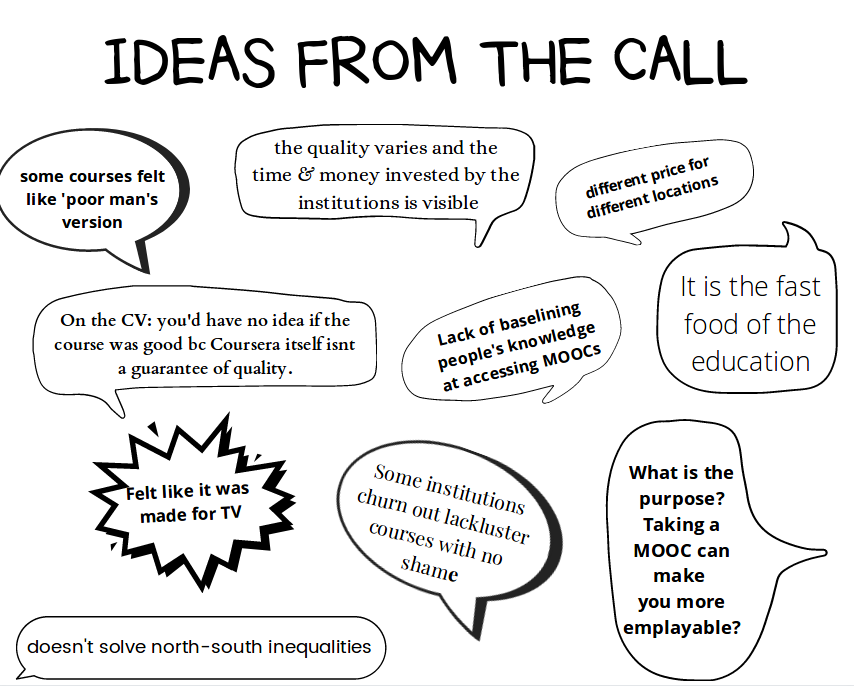This week I have discovered that there is a Whatsapp group of the IDEL cohort, as well as a Facebook group! I joined both of them and it has been nice to share thoughts and know people from the course beyond the University platform. This week I feel quite different than other weeks where I felt overwhelmed, intimidated and alone. being part of this informal context has allowed me to see that we are all in the same boat, struggling with the readings, time and blog post.
We have crossed the equator of the course and people are experiencing the pressure and tiredness. Probably because of that, we organised a Zoom call to comment on the MOOC task and share some ideas. I guess we all had the need to share and get ideas from others because our brains are starting to get dreined, I am sure we have been able to produce better individual ideas and blog post after that videocall.

In my opinion, I think we were being very critical with MOOCs, embracing the attitude learned from this week articles. At some point, I felt the need to take part in the positive side and here are some of my optimistic way of analysing open education.
- We have to work with what we have. Reality is that the world is not fair, there are so inequalities, however, I believe that OER and MOOCs, in particular, are a good way to lower some high walls.
- I think we were all having an education bias here when evaluating MOOCs, in general, everyone in the group comes from a similar professional background (working in education), and probably MOOCs don’t have a good offer here. However, I think they make a change when we are talking about technical skills like coding and programming. I have learned python and some coding thanks to Coursera and other platforms. That makes me positive considering the value of a MOOC and seeing the potential to improve my CV for example.
- I don’t see MOOCs as the “fast food” of education, I think the conversation is more nuanced. Using the food metaphor I would say that MOOCs are the GMO products. It is not easy to take an extreme side when we are talking of GMO. Many people would argue that are bad because are genetically modified food, or maybe because there is a huge economic empire behind and it the food sovereignty is in danger. However, it cannot be denied the arguments that claim that GMO products are offering developing countries to sustain themselves and reduce worldwide hunger.
For me is difficult to have a strong opinion against MOOCs, because even though I am aware and acknowledge all the limitations and problems, I think they are not a bad idea per se. I think they can be a good ally to minimise the world inequalities.